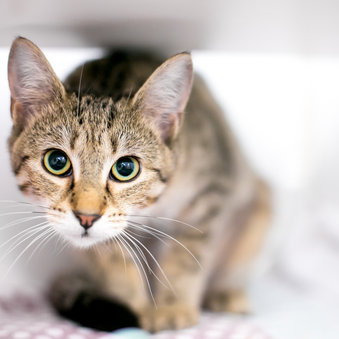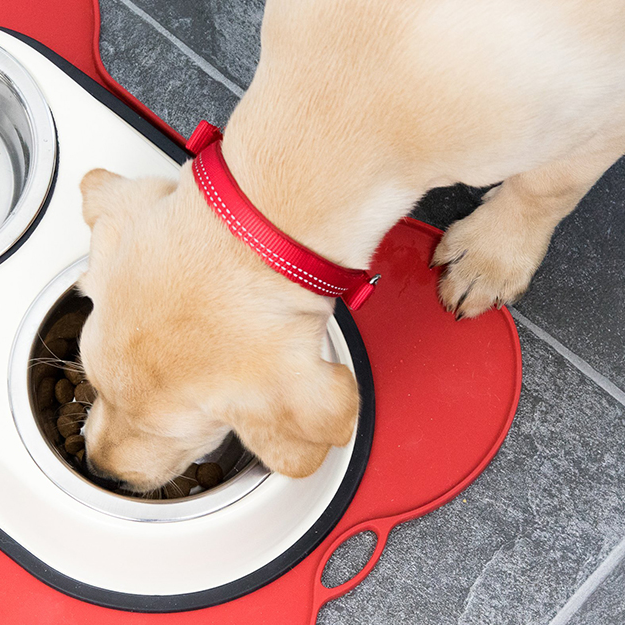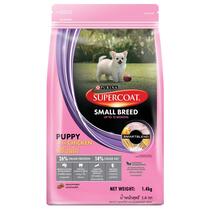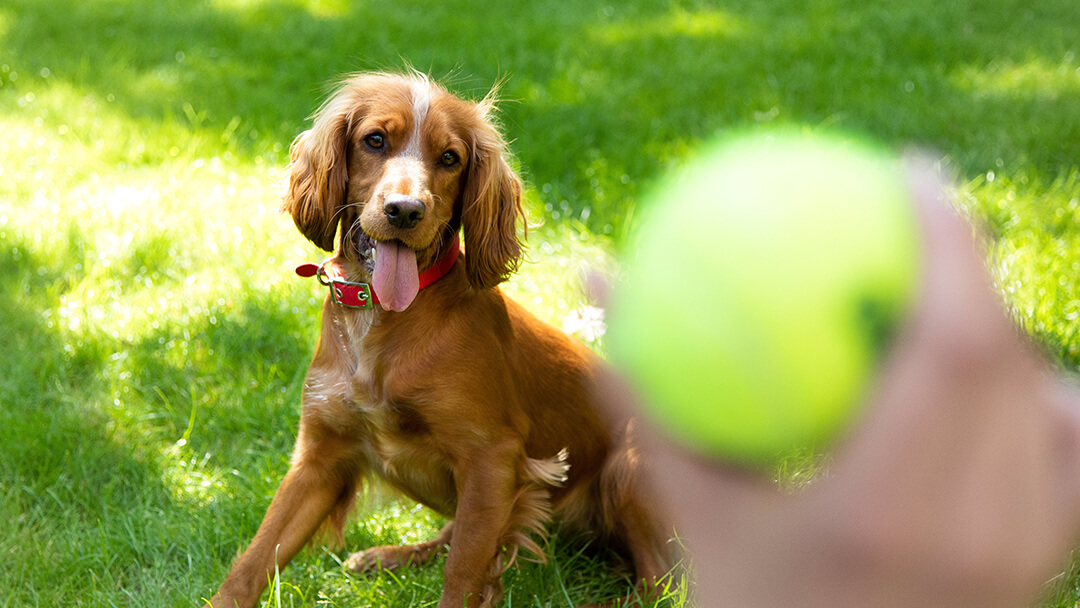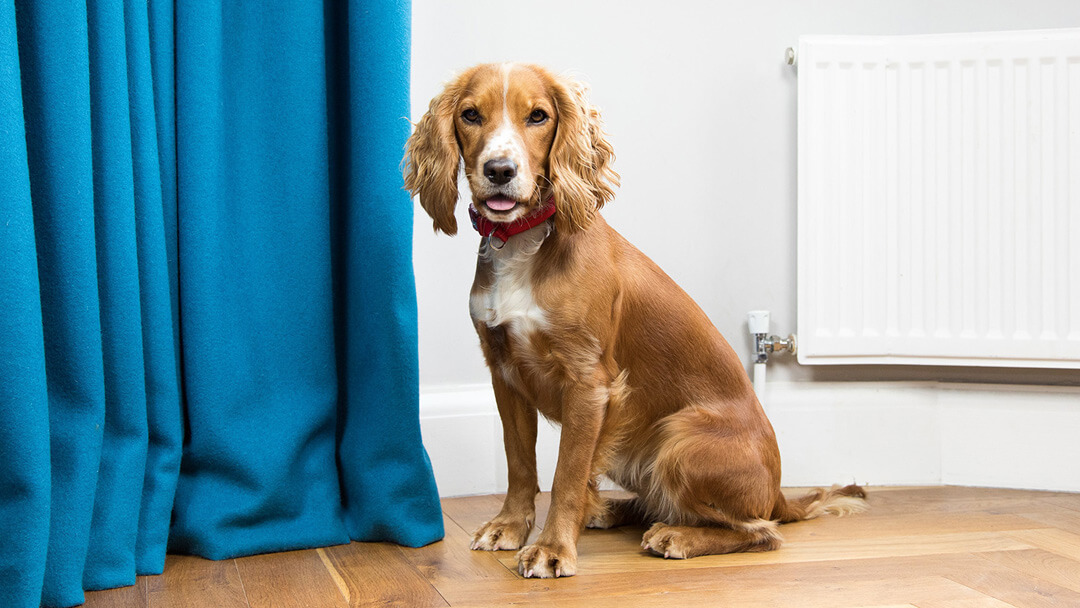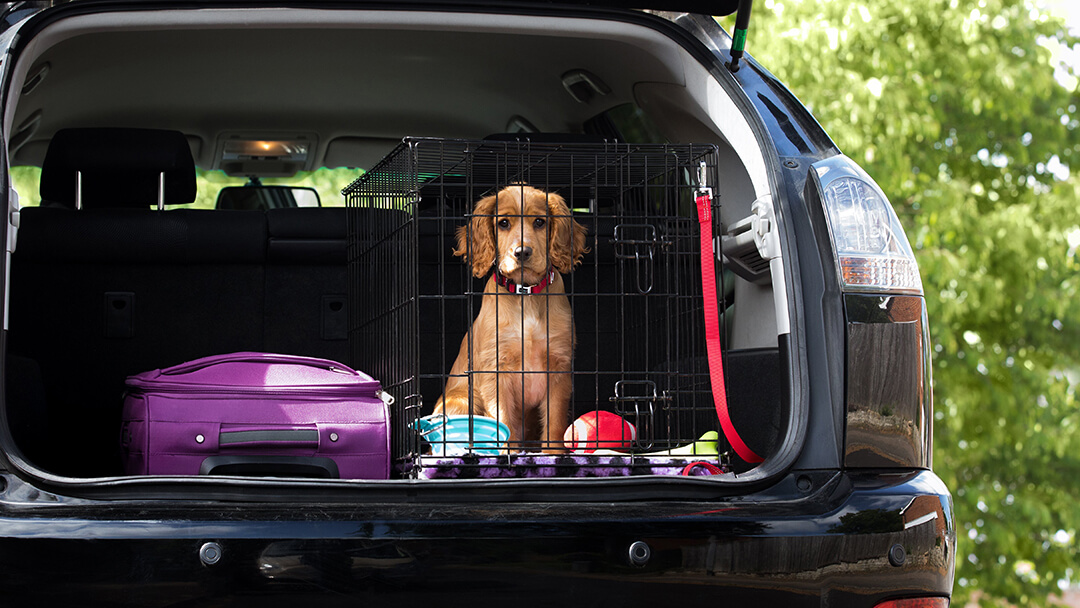
When your little puppy grows up their requirements change, which means that you need to think about what kind of dog equipment they need as they become a teenager! Read our guide for our top tips and advice to make the teenage years a breeze.
Now your puppy is growing up and has approached what we call dog adolescence, most of the things you bought when they were a young puppy have been outgrown, and it’s time to go shopping again! Just like when they were smaller, you may start wondering: what dog accessories do I need? Read on for our guide to knowing what kind of puppy equipment to choose for your pup as they become an adolescent.
Choosing the right collar and lead as your puppy gets older
By now your teenage dog will have grown out of their puppy collar, as with lots of their other puppy equipment, and will probably be ready for their first adult collar. You need to make sure you get a collar that is going to be comfortable for your dog to wear - so find a soft material or padded leather one that doesn’t have hard edges. The wider the collar the better, as it will spread any pressure over a greater area – making it gentler around your dog’s neck.
You will be doing more training with your dog when you are out and about, so finding a 6-inch training lead with clips on both ends and various D-rings to adjust the length will be a great investment. They are wonderful to add to your selection of dog equipment: great for walks, classes, and also useful if you need to secure your dog to anything. Find one that is strong but also comfortable for you to hold. Stay away from any collars that can tighten around the dog’s neck, such as choke chains, and extendable leads.
Choosing a harness for your teenage pup
As your puppy gets older, they’ll also get stronger. Unless your dog walks without pulling on a flat collar, you may want to consider adding an anti-pull harness to your arsenal of puppy accessories.
This will lessen the chance of injury to your dog’s neck and also make walks far more enjoyable for you both. A good harness should be easily adjustable, fit your dog without rubbing anywhere, not move around or slip with movement, and keep the dog’s shoulders free so they can move without restriction. Having various places to attach the lead is useful too, as it will mean you can walk your dog from either side and vary its use.
The benefits of a long line lead
Teenage dogs can suddenly develop selective deafness when it comes to recall, so having a long line will be a useful part of your dog equipment tool box! They take a bit of practice to use without tying your legs together, but once you adjust to using one, you’ll find it will be invaluable during your dog’s adolescence.
Should I get a new puppy bed yet?
While it is tempting to think that now your dog is nearly fully-grown it’s time to splash out on some fabulous beds that complement your interior design, but don’t be too hasty. Teenage dogs tend to go through a chewing phase for a few months when they get their adult teeth, so this might not be the best time for expensive investments. Make sure your dog has comfortable places to sleep in every room you spend time in together, with padding thick enough to support growing joints, but don't buy anything that you would mind getting gnawed, and save buying top-of-the-range beds until your dog is a little older and past the chewing phase.
Things for a puppy to chew
One of the most essential puppy accessories you need to purchase is chew toys. As teenage dogs do need things of their own to chew and gnaw. There are plenty of toys that can help them do this.
Kong toys are the best known as they are perfectly shaped, so you can stuff food into them and make chewing them rewarding, as well as being good for your dog’s new adult teeth. Make sure that once your puppy’s adult teeth have come through that you clean and care for them properly.
Destructible toys
Some of the best toys aren’t expensive and can’t be found in the shops! The inside of toilet rolls or kitchen towels – or even small boxes, as long as they don’t have sharp edges – can make great toys to hide treats in. This kind of puppy equipment will give your dog a chance to rip and tear to get at the food inside, giving them a chance to do some problem-solving, and also indulge in their natural scavenging behaviour in a safe and appropriate way.
Interactive toys
Teenage dogs need mental as well as physical exercise, so now that you’re revisiting your collection of dog equipment, it’s the time to invest in toys that provide mental stimulation. Most of these have ways to hide treats or kibble inside so your dog has to use their brain to work out how to extract the yummy goodies from inside. To start with, you may have to help and encourage your dog while they work out how to get the treats out of the toys, but soon they will work them out for themselves. You will discover if your dog prefers to use their mouth or their paws when they play, and you can focus on building their own specific skills with more complex toys.
Sniffing toys such as snuffle mats (which you can either buy or make yourself) are also ideal dog accessories as they encourage them to use their nose in order to find treats, which most dogs love but are rarely given a chance to do.
Check your existing toys
This is the perfect time to check all the toys your dog already has. Are they big enough so your dog can’t get them stuck in his throat? Are they worn or broken? Throw out and replace any that might not be safe or appropriate.
Garden toys
Knowing what your dog enjoys doing is the key to providing the perfect toys. For some, no amount of dog accessories is better than having their own digging pit in the garden, or even some starter agility equipment so you can practice going through tunnels and round weaves. For others a paddling pool can be their idea of heaven especially during a hot summer.
So now you know which puppy accessories you need for your growing teenage dog! If you’re looking for more puppy advice, and want to find out how much puppy essentials cost, read our article.

